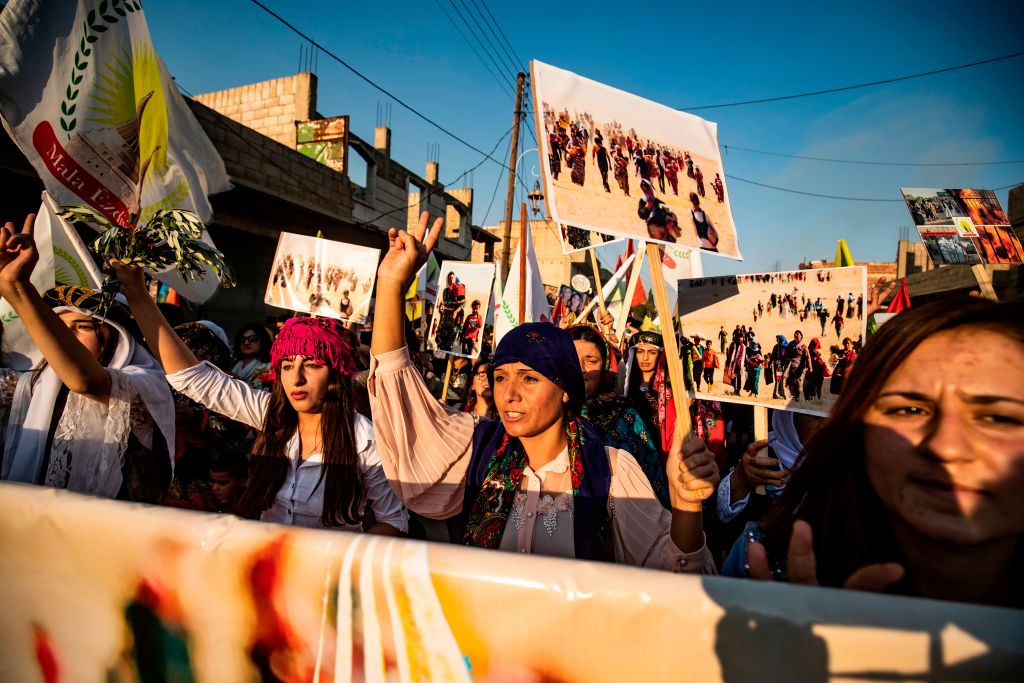
More than two years have passed since Australia released its second national action plan on women, peace and security, but the government has not yet reported on its implementation.
The plan is intended to ensure that Australia’s responses to crises overseas prioritise the rights of women and girls. The Department of Home Affairs has responsibilities under the plan, but its implementation is lagging in key areas.
Ending impunity for conflict-related sexual violence is a core part of the women, peace and security agenda. It was part of Australia’s first action plan and Australia advocates internationally on this issue. Increasing access to justice for survivors of conflict-related sexual violence is one of the four priorities of the second action plan. But over the years, various Australian policies and practices have prevented access to justice, or passively got in the way.
Conflict-related sexual violence can easily be dismissed as something that happens somewhere else, perpetrated by people from another country against people there, and therefore too difficult to prosecute. But more than 200 Australians travelled to Syria and Iraq to fight with the Islamic State terror group and other extremist organisations that perpetrated sexual violence as war crimes, crimes against humanity and genocide against Yazidis and other groups.
These foreign fighters remain subject to Division 268 of the Commonwealth Criminal Code, which covers genocide, crimes against humanity and war crimes. Because Australia is a state party to the Rome Statute of the International Criminal Court, we are obliged to investigate and prosecute these crimes in our own court system. We have failed to do so.
Some individuals have faced terrorism charges, but not genocide or gender-based violence offences. In other cases, the Australian government revoked the citizenship of individuals, leaving them at large to continue carrying out such crimes in unstable parts of the world.
I gave testimony before the Joint Parliamentary Committee on Intelligence and Security expressing concern about such decisions. Even some of those held in prisons in places such as Syria may have been set free during military operations.
The main reason why citizenship is a barrier to justice for conflict-related sexual violence is that for prosecution to occur, the perpetrator needs to be in the custody of the Australian Federal Police. Prosecution cannot be undertaken in absentia.
But other barriers to justice exist. Home Affairs’ implementation of the national action plan includes action to combat modern slavery. This issue overlaps with the WPS agenda. In 2016, the UN Security Council passed resolution 2331 reiterating the need to end impunity for conflict-related sexual violence. This resolution called on all member states to investigate and prosecute those responsible for human trafficking in areas of armed conflict. It recognised that such crimes ‘can be part of the strategic objectives and ideology of, and used as a tactic by, certain terrorist groups’.
The Security Council went on to note that trafficking contributes to the ‘funding and sustainment’ of these organisations. My research showed that sexual slavery, and the failure of the international community to sufficiently respond, brought Islamic State up to US$111 million.
While Australia’s criminal code does account for human trafficking, including for the purposes of sexual slavery, the Modern Slavery Act, and the plan to implement it, mostly look at slavery in manufacturing. So, when that is included in Home Affairs’ implementation of the WPS agenda, it misses a large piece of the puzzle.
When Yazidi women who were held in sexual servitude by Australian man Khaled Sharrouf sought meagre access to victims-of-crime support through the New South Wales Civil and Administrative Tribunal, the tribunal found against them. The ruling was based on the fact that Sharrouf’s crimes were not ‘in and of’ New South Wales. But his crimes amounted to genocide, which has universal jurisdiction under Australian law.
Other cases have highlighted the lack of capacity of Australian judicial institutions to enforce international law in our own court systems. But that is not acceptable. Both the judicial capacity and the bureaucratic capacity to share information for the purposes of criminal accountability must be remedied. Perhaps the Australian Civil-Military Centre, which has a remit from the National Security Committee of Cabinet to improve Australia’s whole-of-government responses to conflicts and disasters overseas, could assist in this regard.
The Australian Centre for International Justice recently called for the establishment of an independent unit within the Australian Federal Police dedicated solely to the investigation of international crimes. This would go some way to remedying this shortfall. But several departments need to do much more to implement the national action plan on WPS.

